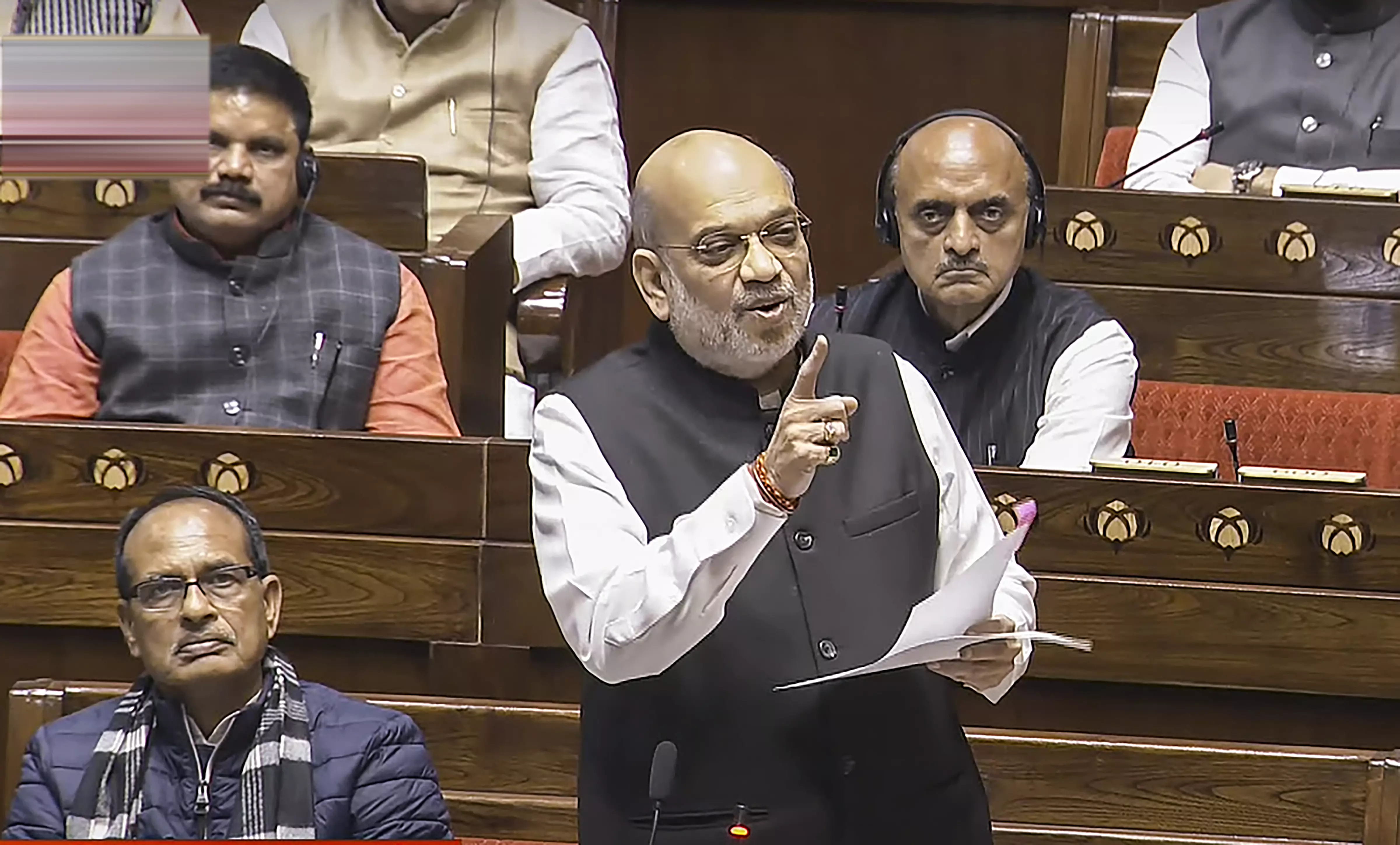
Parliament LIVE | Will bring Uniform Civil Code in every state: Amit Shah
Slamming the Congress, the Home Minister said successive Congress regimes did not prioritise the progress of OBCs

The Congress on Tuesday (December 17) claimed the Bill on holding simultaneous polls was against federalism and "anti-constitutional", and said the voting at its introduction stage in Lok Sabha showed the BJP lacks the two-thirds majority required to pass a constitutional amendment.
Two Bills that lay down the mechanism to hold simultaneous elections were introduced in the Lok Sabha after a fiery debate on Tuesday.
Opposition parties dubbed the draft laws -- a Constitution amendment bill and an ordinary bill -- as an attack on the federal structure, a charge rejected by the government.
Also read: 'One Nation One Election' Bill likely to be tabled in Lok Sabha today
Speaking to reporters on Parliament premises, Congress MP Priyanka Gandhi Vadra said, "Anti-constitutional bill, it is against the federalism of our nation. We are opposing the bill."
Congress MP Shashi Tharoor also hit out at the government, saying voting at the introduction stage showed the BJP did not have the two-thirds majority required to pass a constitutional amendment.
"We (the Congress) are not the only ones that have opposed this bill. The vast majority of the opposition parties have opposed this bill and the grounds are very many, it is a violation of the federal structure of the Constitution. Why should a state government fall if the central government falls?" he told reporters on the premises.
Tharoor said the government might constitute Parliament's joint committee in such a way that it has a majority, but without a two-thirds majority in the House there would not be a constitutional amendment. "So this discussion is increasingly futile," he added.
Opposition terms move 'dictatorial'
The Opposition termed the move “dictatorial” even as Union Law Minister Arjun Ram Meghwal asserted that the legislation would not tamper with the powers enjoyed by states.
The Constitution (129th Amendment) Bill was introduced in the Lok Sabha by Meghwal after a nearly 90-minute debate, followed by a division of votes. As many as 269 members voted in favour of the Bill and 198 against it.
Meghwal also introduced The Union Territories Amendment Bill, which seeks to align elections in the Union territories of Puducherry, Delhi, and Jammu and Kashmir with the Lok Sabha polls. He said the proposed bills did not attack the "basic structure doctrine, as claimed by the Opposition". He said he would move a resolution referring the Bills to a joint committee of Parliament.
Also read: BJP’s obsession with One Nation, One Election: Implications for democracy
Congress MP Manish Tewari opposed the introduction of the Bills and termed the move an assault on the basic structure doctrine that stipulates certain features of the Constitution are beyond the amending power of Parliament.
Samajwadi Party MP Dharmendra Yadav said the measure to introduce "one nation, one election" by the BJP was an attempt to bring dictatorship in the country.
TMC MP Kalyan Banerjee said the Bills linked the tenure of state assemblies to that of the Lok Sabha, thus undermining the mandate of the people.
DMK member TR Baalu said, "The electors have the right to elect the government for five years and this right cannot be curtailed with simultaneous elections."
Meanwhile, BJP allies TDP (TDP) and Shiv Sena (Shinde) extended "unwavering support" to the election reform measure.
TDP member and Union minister Chandra Shekhar Pemmasani said "One Nation, One Election" would reduce expenditure on polls and enhance logistical efficiency.
Shiv Sena member Shrikant Shinde hit out at the Opposition, saying they were allergic to reforms.
Follow the live updates here
Live Updates
- 17 Dec 2024 7:56 PM IST
Shah dubs Congress 'anti-reservation'
"Today, I want to tell you how the Congress party is actually anti-reservation. Their words and actions are completely contradictory. In 1995, the Kaka Saheb Kalelkar Commission was formed to provide reservation to OBCs. Where is its report? It was forgotten because OBCs would have received reservation. Any report that comes has to be appeared before the Cabinet, but instead of bringing it to Parliament, they kept it in the archives. If the Kaka Saheb Kalelkar report had been accepted, the Mandal Commission report of 1980 would not have been necessary," says Union Home Minister Amit Shah

